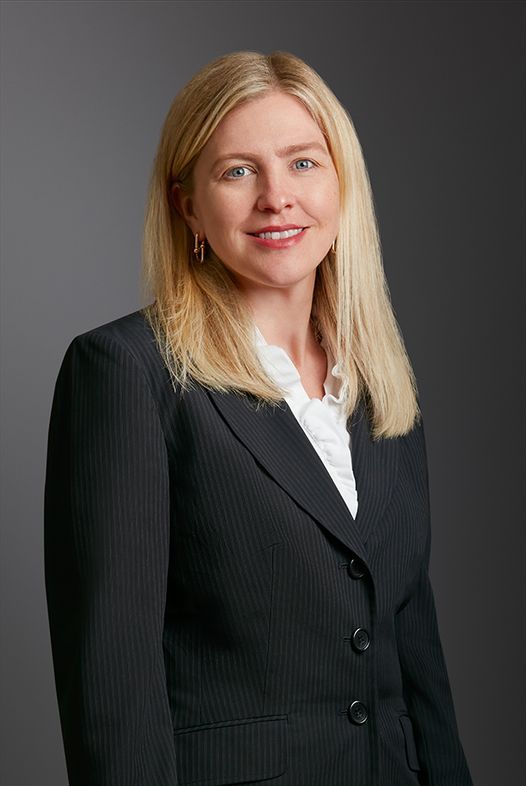Is a Claim Term’s Whole Greater Than the Sum of Its Parts?
February 6, 2024, 2:15 PM
Claim terms are usually given their ordinary meaning in light of the intrinsic evidence, but what if the ordinary meaning of two claim terms presents an obvious contradiction? That is the issue that the Federal Circuit will address when it hears oral argument in Maxell v. Amperex Tech., No. 23-1194 on February 9, 2024.
Maxell appeals a partial final judgment under rule 54(b) from the Western District of Texas, holding invalid as indefinite all claims of U.S. Patent No. 9,077,035. The District Court’s ruling is grounded in a plain reading of the disputed term. The term’s first part (“M1 represents at least one transition metal element selected from Co, Ni and Mn”) renders cobalt (“Co”) optional, whereas the second part (“wherein the content of Co in the transition metal M1 of the formulae (1) and (2) is from 30% by mole to 100% by mole”) requires cobalt. The Court agreed with Amperex that this obvious contradiction gives rise to a lack of reasonable certainty whether cobalt is optional or required.
Maxell argues that the District Court erred in declining to read the two parts of the term together, “which resulted in its failure to recognize the claim scope defined by [their] intersection[.]” When read in its entirety, Maxell argues, a Person of Ordinary Skill in the Art (POSA) would understand that the term requires that M1 must include cobalt. Amperex responds that Maxell’s allegedly inconsistent position demonstrates the term’s “insoluble ambiguity.” According to Amperex, Maxell unsuccessfully argued during claim construction that the first half of the term requires cobalt and the second part of the term merely confirms it. Maxell then shifted to treating the second part of the term as modifying the first part, such that while the first part does not require the presence of cobalt, the percentage clause does. Amperex also argues that in the same claim, Maxell used language requiring magnesium (“Mg”) in M2 (“M2 represents Mg and at least one metal element selected from the group consisting of Ti, Zr, Ge, Nb, Al and Sn”), indicating that Maxell understood how to claim that M1 requires Co and permits Ni and Mn, but chose not to do so.
Both parties cited Multilayer Stretch Cling Film Holdings v. Berry Plastics, where the Court held a dependent claim indefinite for including an element excluded by its independent claim. 831 F.3d 1350, 1362 (Fed. Cir. 2016). Amperex argued that Multilayer is “no different,” while Maxell argued it was inapposite because the terms here are not mutually exclusive. Amperex also points to Allen Eng’g v. Bartell Indus., where the Court refused to correct an obvious contradiction, stating that “[i]t is not our function to rewrite claims to preserve their validity.” 299 F.3d at 1349 (Fed. Cir. 2002). Courts have latitude to correct “minor obvious typographical and clerical errors.” Pavo Solutions v. Kingston Tech., 35 F.4th 1367, 1373 (Fed. Cir. 2022). But the error in Pavo was a single word (reciting “case” instead of “cover”) whereas Maxell would re-write an entire phrase. Further, unlike the patentee in Pavo, Maxell treated the issue as an ordinary claim construction dispute and did not ask the District Court to correct the claim. Id. at 1375 (distinguishing Chef America v. Lamb-Weston, 358 F.3d 1371 (Fed. Cir. 2004), in part because the patentee in that case did not seek correction). In light of those differences, it will be interesting to see what the Federal Circuit panel has to say during oral argument and whether it is inclined to uphold the District Court’s finding of indefiniteness.
Maxell argues that the District Court erred in declining to read the two parts of the term together, “which resulted in its failure to recognize the claim scope defined by [their] intersection[.]”

To subscribe to our publications, click here.
News & Insights
News & Insights
SABA North America Annual Conference 2025
Speaking Engagement
Antitrust
NJSBA Annual Meeting and Convention 2025
Speaking Engagement
Intellectual Property
Hartford HealthCare Black and Red Gala 2025
Sponsorship
Antitrust
Informa CompLaw Antitrust West Coast Conference 2025
Speaking Engagement
Antitrust
AHLA Health Care Transactions Program 2025
Sponsorship
Antitrust
IAM Live: Auto IP USA 2025
Speaking Engagement
Intellectual Property
ACI 21st Annual Paragraph IV Conference
Speaking Engagement
Intellectual Property
Federal Circuit Holds Generic’s Hatch-Waxman Litigation Expenses Deductible
Axinn Viewpoints
Intellectual Property
Axinn Associates at the Antitrust Spring Meeting: Enforcers’ Roundtable
Axinn Viewpoints
Antitrust
Axinn Associates at the Antitrust Spring Meeting: The Future of Healthcare Mergers
Axinn Viewpoints
Antitrust

